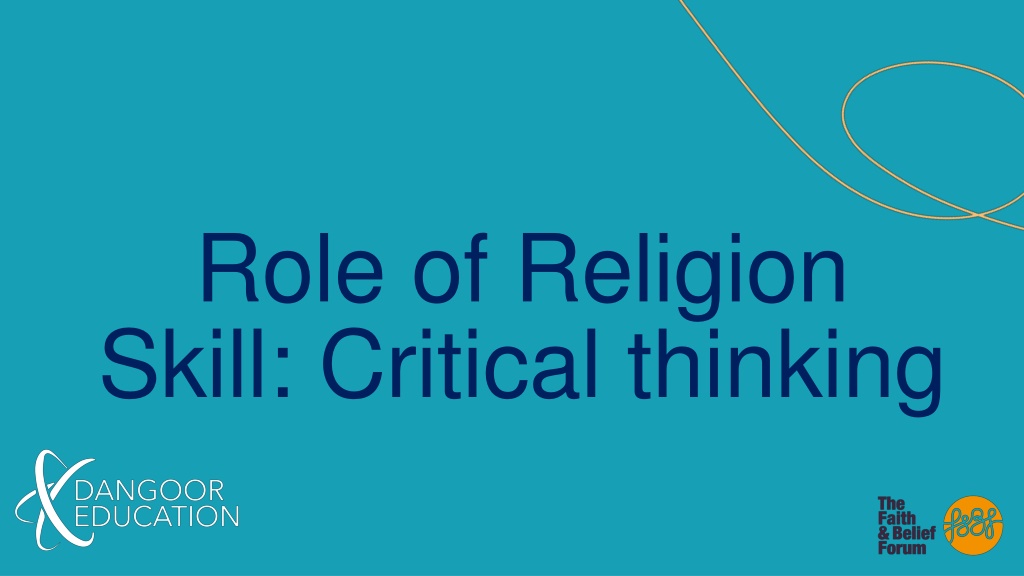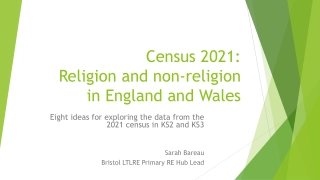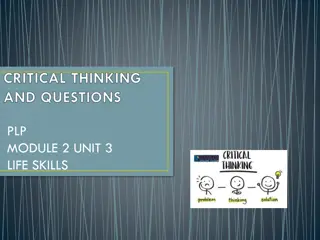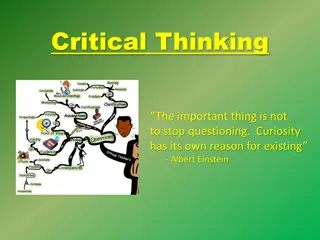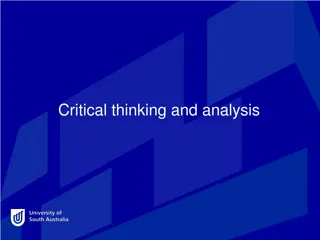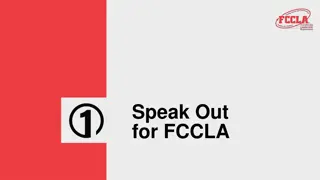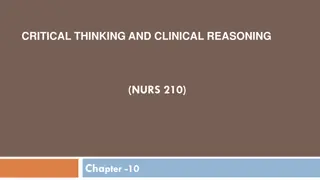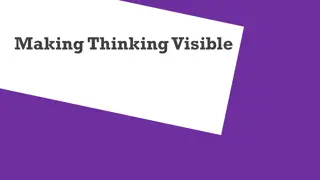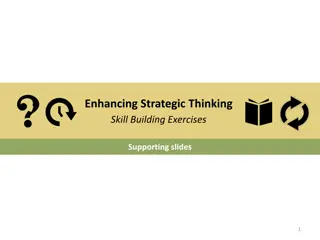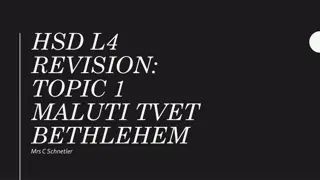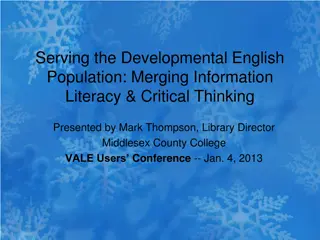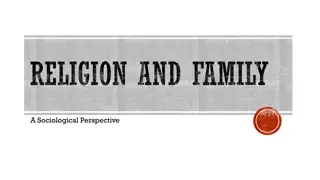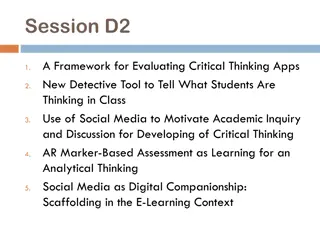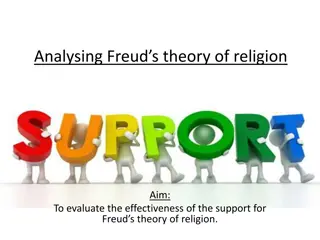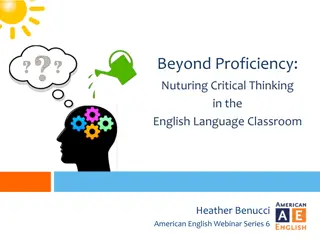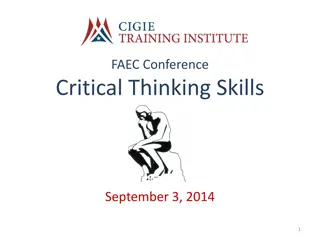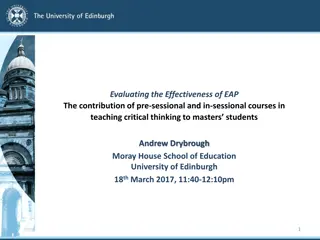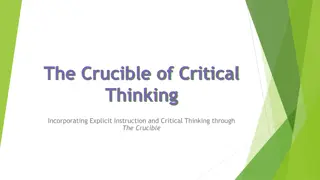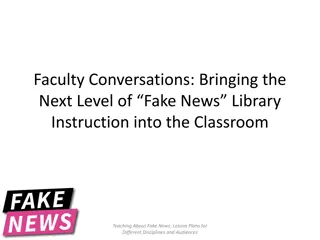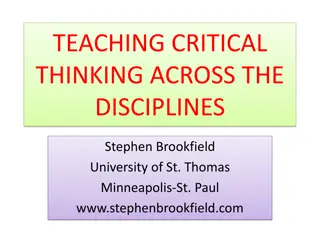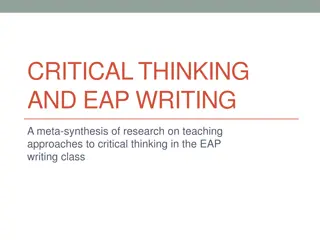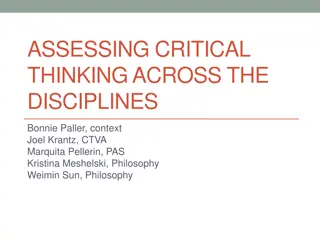Enhancing Critical Thinking Through Examining the Role of Religion
Explore the role of religion in developing critical thinking skills by identifying biases, critically evaluating information sources, and fostering nuanced perspectives. Reflect on personal biases, sources of information, and engagement with controversial issues. Enhance critical thinking by analyzing opinions, worldviews, factual content, biases, and harmful language.
Uploaded on Sep 21, 2024 | 0 Views
Download Presentation

Please find below an Image/Link to download the presentation.
The content on the website is provided AS IS for your information and personal use only. It may not be sold, licensed, or shared on other websites without obtaining consent from the author. Download presentation by click this link. If you encounter any issues during the download, it is possible that the publisher has removed the file from their server.
E N D
Presentation Transcript
Role of Religion Skill: Critical thinking
Introduction & Learning Objectives Skill: Spotting our own biases and thinking critically about the media or information we consume; holding assumptions lightly and emphasising nuance. To examine our own information consumption and identify our own personal biases To understand how critical thinking can help to spot bias and agenda in narratives To practice seeking wide ranges of information and holding our own assumptions lightly Revisit your RADIO Safe Space agreement or watch the Safe Space film Safe Space film click PLAY
How do we go about informing ourselves; what are our sources and how do we navigate them? Does religion unite or divide society? YES IT DEPENDS NO
Where do your opinions and information come from?
Controversial Issues Film PLAY Click PLAY above or go to https://www.youtube.com/watch?v=5MsIZhIYiJg 1. What does bias mean? 2. Where do we see bias in our sources of information? 3. Where we see bias in ourselves? 4. How does this affect dialogue around controversial issue?
Part 1 Thinking critically about sources Views on Religion worksheet What do you think of this opinion? What is this person s worldview? Do we know? What part of this is factual? Which parts can we fact-check? Is there any bias here? Why / where / how? Is any of their language harmful? How does this match what you usually hear?
Part 2 Thinking critically about ourselves My Biases worksheet 1. What sources of information are in my comfort zone / do I instinctively get pulled into? 2. What sources of information make me feel uncomfortable / make me instinctively recoil? 3. What kind of language is appealing / unappealing to me? 4. What kind of imagery is appealing / unappealing to me? 5. What kind of people do I like to agree with / disagree with? 6. How often do I look for information that supports my opinions? 7. How often do I look for information that contradicts my opinions?
Questions/reflections What are some of the top tips for engaging critically around an issue?
Top tips! How do we go about informing ourselves; what are our sources and how do we navigate them? Acknowledge which sources you have and haven t consulted / are and aren t exposed to Try to establish the source s bias and look out for any red flags: harmful / de-humanising language, etc. Separate opinion from fact: fact-check the latter Reflect on your own response (how do you feel? what do you think of it?) to that information and what bias of your own that response reflects Seek opposing, alternative or a broad range of views on an issue in order to compare and contrast, getting a fuller picture
Homework Think about one issue you engage with this week, that s relatively controversial . Answer the questions in writing about it.
Homework questions: 1 What controversial issue did you engage with? 2 What did the conversations you had or the articles / opinions you read tell you? 3 Seek two alternative or opposing narratives on the issue: how did you decide what these should be, and where to find them? (Hint: what can you say about your existing info?) 4 What did you learn from comparing and contrasting them to your original sources?
Next Lesson: We ll be looking at the fact that controversial issues evoke strong emotions in us and other people, and how this can act as a barrier to engagement.
